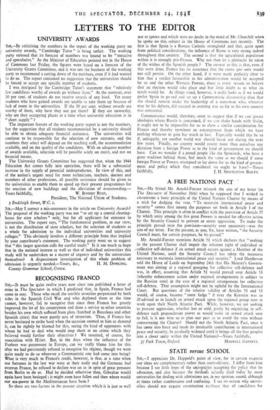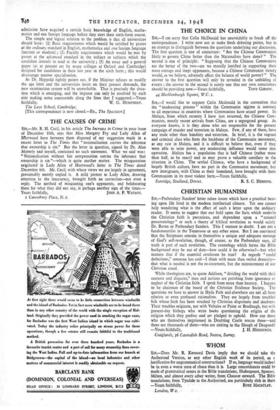STATE versus SCHOOL SIR, I appreciate Dr. Happold's point of
view, for in certain respects our ideas are complementary rather than contradictory. I differ from him because I see little hope of the universities accepting the policy that he advoCates, and also because the tietloai actually used today by most universities for dealing with admissions are, in my opinion, sound, although at•times rather cumbersome and confusing. I see no reason why univer- sities should not require examination evidence that all candidates for
admission have acquired a certain basic knowledge of English, mathe- matics and one foreign language before they start their sixth-form course. The simple and logical solution to the problem is that all universities should have: (1) Basic requirements which would be satisfied by passes at the ordinary standard in English, mathematics and one foreign language (ancient or modern) ; (2). Faculty requirements which would be met by passes at the advanced standard in the subject or subjects which the candidate .intends to read at the university ; (3) An essay and a general paper (as at present set by many colleges at Oxford and Cambridge) designed for candidates in their last year in the sixth form ; this would discourage narrow specialisation.
As Dr. Happold rightly points out, if the Minister refuses to modify the age limit and the universities insist on their present demands, the new examination system will be unworkable. That is precisely the situa- tion which is emerging, and the impasse can only be resolved by each side making some concessions along the lines that I suggested.—Yours
[This correspondence is now closed.—ED., The Spectator.]



































 Previous page
Previous page